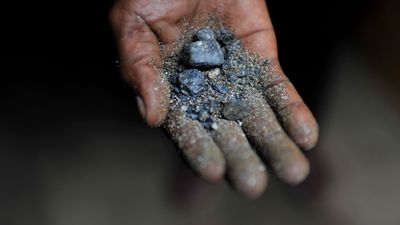Sought-After Mineral Discovered in Kenya but Citizens Are Wary of Development
Salim Mvurya, Kenya's mining minister announced on Wednesday that sufficient deposits of valuable mineral coltan have been found in six different counties for the first time.
Kenyan officials announced on Wednesday that they have discovered reserves of the precious metal coltan. Coltan – short for columbite-tantalite – is used to create the rechargeable batteries that make smartphones, laptops, electric vehicles, and most electronic devices.
Other precious metals like uranium and cobalt have been detected across the East African nation in previous years. However, as the country’s Mining and Blue Economy Cabinet Secretary (CS) Salim Mvurya shared at the Embu county headquarters, “It is now official. We have coltan deposits in the country and we want to see how we can inspire the investors.” The size of the reserve is yet to be determined, however, Mvuyra says that the Kenyan government is currently assessing its economic value.
According to Mvurya, the government is set on making Kenya’s mining industry more advantageous to the well-being of the country, with more jobs being promised to assist in the exploration and excavation of the minerals across the different counties. The excitement felt by the Kenyan officials was not mirrored by all of the general public, as Wednesday’s announcement reminded many of the nation’s previous excitement over the 2012 discovery of oil in the Turkana county, as well as the discovery of copper reserves in 2018. Both revelations promised a boom in the economic and labor sectors, as well as better conditions for residents living in the areas but neither delivered.
Kenyan national Jonah Saitoti Tiren claims that the discovery is not likely to benefit Kenyans, and would lead to “land grabbing” by the government. It has been made known that several counties across Kenya are rich in minerals. The areas, including Embu, Samburu and Turkana, are more often than not, the homes of pastoralists. East Africa has a history of cattle rustling where livestock is stolen from farmers and the Kenyan government has spent decades attempting to curb the often-violent criminal act. At first, they declared that evicting the areas was the only way to stop the issue, then it was that they were to fence off the “liberated” areas.
“This made me 99 percent sure that the then new government was out to grab land,” Tiren shares, adding, “not just land, but mineral-rich lands.”
Furthermore, Tiren points to the statement made by the National Land Commission titled “Invitation for Public Comments On The Draft Natural Resources Atlas For Kenya” released in March 2023. “Kenya is a “sovereign” nation, right? Why are the EU and UN logos on a Kenyan Government [statement] on mapping of minerals in Kenya. What are their agendas?” he says.
Echoing the distrust in the government’s intention was Nebart Muriuki, Mbeere South MP, who advised residents to recognize the value they have just inherited. Speaking to the Embu residents, Muriuki said, “A precious mineral has been found here and if you want to benefit you should not sell your land.” Embu governor Cecily Mbarire, however, expressed her excitement as she claims 20 percent of the mineral proceeds will go to the county, and 10 percent will benefit the community directly. Mbarire claims that her administration is collaborating with the national government to ensure the successful mining of coltan in the region.
Before the announcement, most of the world relied on the Democratic Republic of Congo for coltan. The DRC is estimated to have close to 70 percent of the world’s coltan reserves. The consequences of being abundant in such highly sought-out natural resources have resulted in violent conflict, environmental destruction, and the internal displacement of the Congolese for decades.
- Calls for Safer South African Mines Intensify After 11 Deaths and 75 Injuries Near Rustenburg ›
- A Sci-Fi Film About an Otherworldly Village Made of Old Computer Parts In Burundi By Saul Williams Is In The Works ›
- What Does the Congo Think About Apple's iPhone Announcement ›
